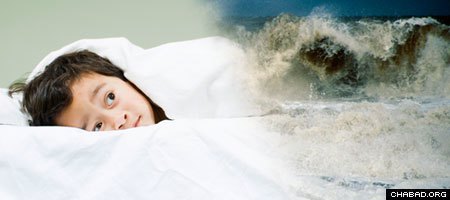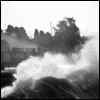In the hours before Hurricane Sandy made landfall Monday, an e‑mail went out to several groups of volunteers in the popular Friendship Circle family of programs, which pair teenage volunteers with children with special needs.
“We hope this e‑mail finds you and yours safe,” began the note, written by coordinators at several Friendship Circles run by Chabad-Lubavitch centers throughout the mid-Atlantic and northeastern United States. “Please note that events like these can be particularly traumatizing for your special friend and his or her family.”
While Friendship Circle chapters throughout the world host a series of initiatives, from home visits to large gatherings and holiday celebrations, this time the call to action was to reach out to offer a reassuring hello and the assurance that those in Sandy’s path were not alone.
“Think about how rational, ‘typical’ adults are stressing out! Now imagine your special friends who are internalizing the media hype, their family’s stress and/or excitement, the actual wind and other unusual elements – it can be pretty scary!” advised the e‑mail. “Bottom line, your special friend might be lying under the covers, or otherwise not coping with the fright of the impending storm—and he or she may really need you!”
A phone call, e‑mail or text from someone they’re comfortable with means a lot to people, and children with special needs are no exception, says Nancy Sinelli, educational director for the Friendship Circle in West Bloomfield, Mich.
Friendship Circle friends can help their buddies feel safe by keeping the situation as regular as it can be, she continues. Kids with special needs, especially those who are autistic, have trouble with transitions, so it’s important for parents to help prepare them for whatever’s next, whether it means evacuating or just moving to a different part of the house.
“What really throws these children is the fear of the unknown,” adds Sinelli. “It’s like ‘I need to know what’s happening, what is going to happen next.’”
For young people with sensory issues, loud noises can be an extra tough challenge, and that includes wind, rain, and in some cases the water.
“A lot of these children have issues with that, so trying to keep them in a place that’s safe, in a place where it would be as quiet as possible, would help,” offers Sinelli. “Kids are very sensitive to the way that other people around them are feeling. So try and give the child a sense of security and safety.”
As far as the Friendship Circle’s team of volunteers and their special friends go, the plan is to keep in touch.
“Do not underestimate the power of simply reaching out and telling them that you and all of us at Friendship Circle are thinking about them,” the e‑mail encouraged. “Perhaps there might even be something more tangible that you can solve for them. It’s at times like these that the human connection is particularly important.”








Start a Discussion